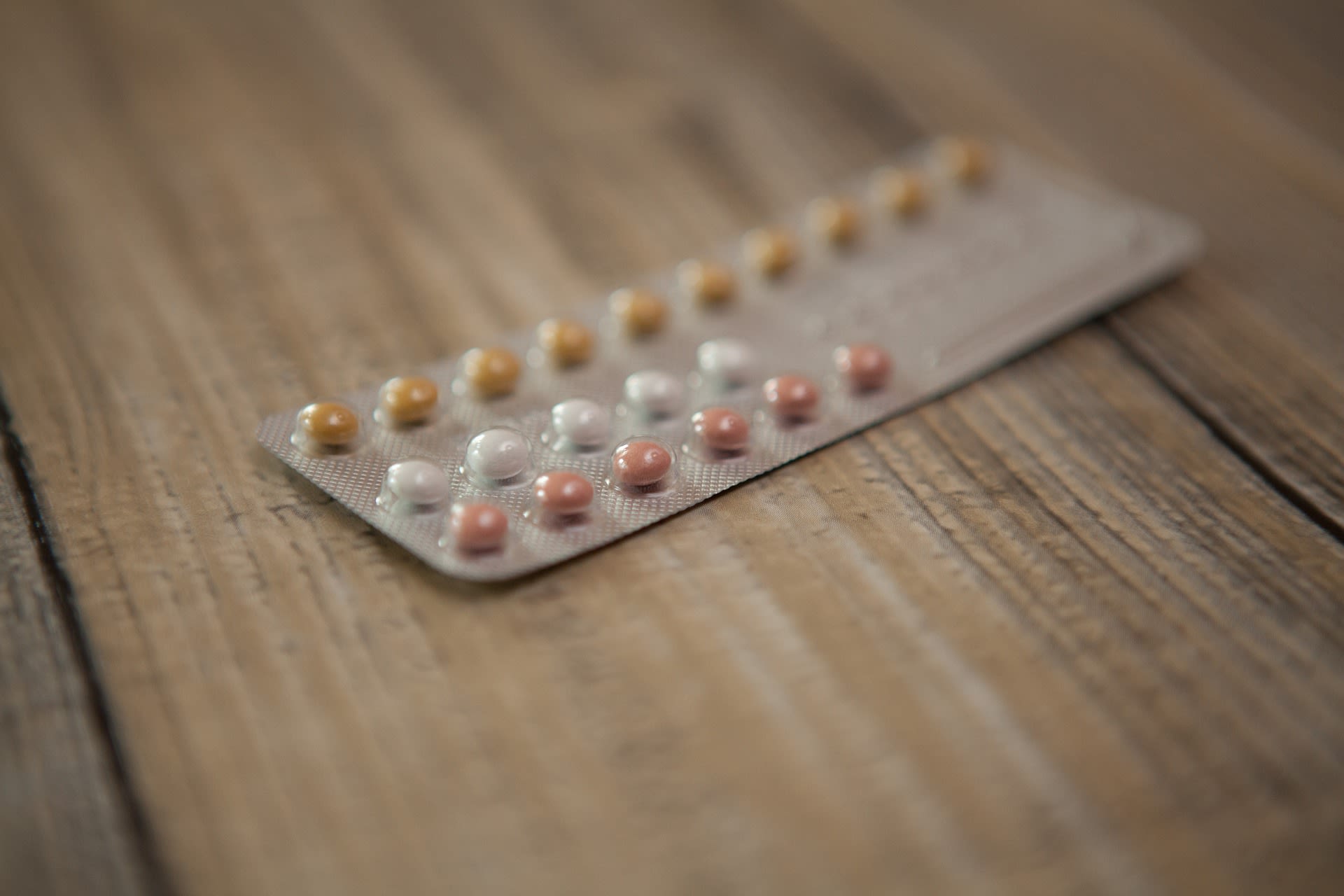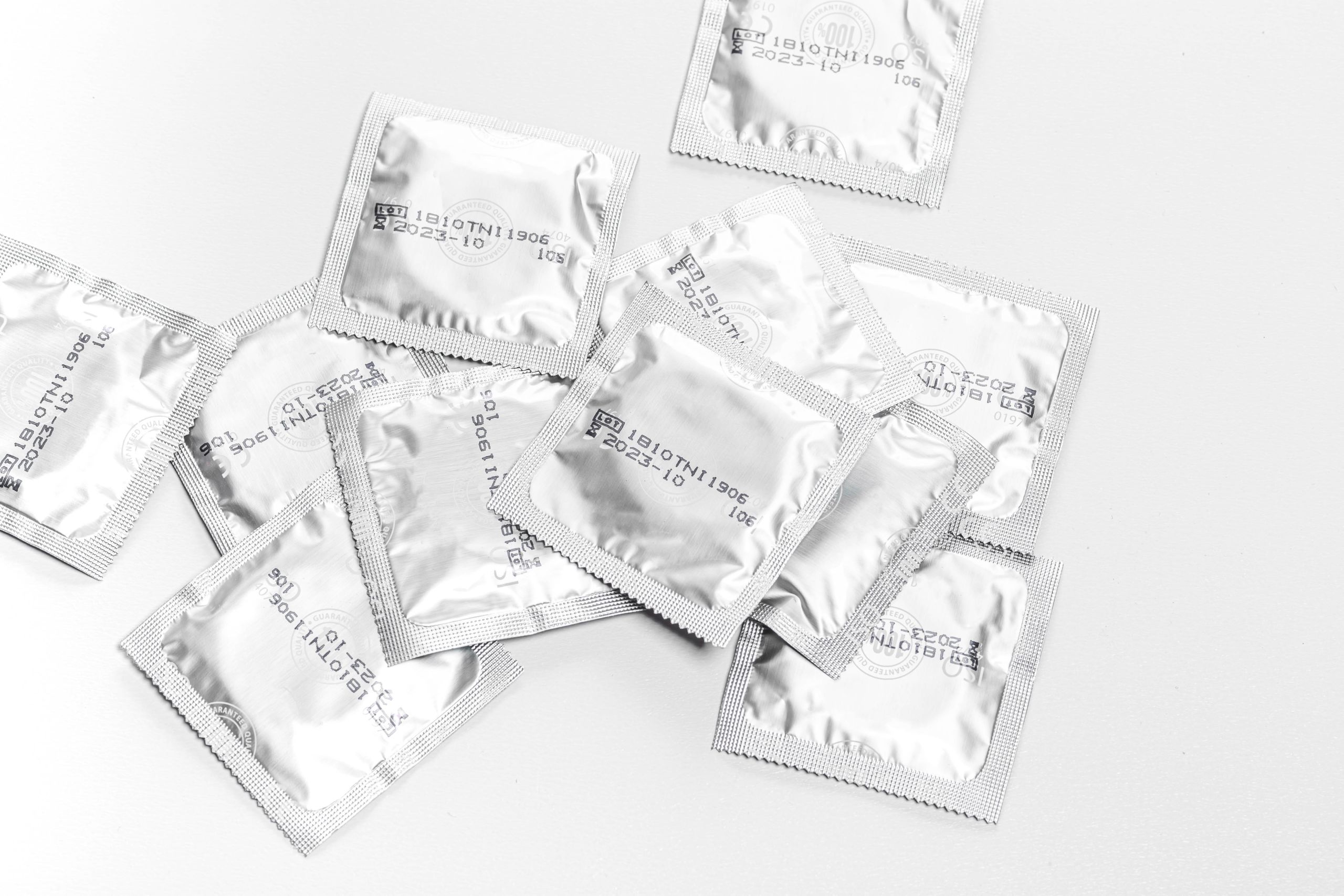Hormonal Contraception
Uncovering people's experiences with the Pill.

Taking hormonal contraception can be liberating for some. But many people suffer in silence when the medication isn't working for them. I spoke to several people with periods to find out why this is and what can be done.
Worldwide, 922 million people with periods of reproductive age (or their partners) are contraceptive users.
Despite such a wide uptake, I was surprised at how many people suffer with damaging side effects.
During my research the number of side effects I found were shocking. These included: mood swings, acne, feeling emotional, anxiety, paranoia, a change in character, deep vein thrombosis, weight loss, migraines, polycystic ovary syndrome, feelings of being trapped.
I also discovered a shocking disinterest from some doctors in terms of the effects hormonal contraception can have on those who take it.
History of the Pill
The Pill was first marketed to women as early as the 1960s when the first of its kind -Enovid- was manufactured.
Most advertising was directed towards family use, that it would be a joint decision between a married couple for the wife to take oral contraception. But a Pill allowing the freedom of a large swathe of the population had only been possible at a detriment to women elsewhere. In the 1950s, 1,500 women in Puerto Rico took the Pill for a number of years at a much higher dose than is administered today. Three women died while the trials were being conducted but autotopsies were never carried out.
Male Contraception
In the 1970s, trials began to test the efficacy of a male contraceptive pill. Since then, the testing of various non hormonal and hormonal treatments have taken place, but none seemed to tempt the pharmaceutical industry backing and not for lack of success.
In Europe between 2003-4, Organon and Schering trialled a contraceptive which successfully saw sperm counts fall and a return to normal fertility levels soon after the subjects stopped taking the medication. But in 2007, the company decided to stop the trials, with many suspecting the decision was due to the lack of profit to be made.
Now, research is being undertaken in the US into a male hormonal contraceptive which they hope to be available by 2030.
This same company Schering, now Bayer, was sued over ten years later in 2015 when its female contraceptive pill Yasminelle was found to cause blood clots, heart attacks and strokes. By 2016, the company had paid over $2 billion in damages to victims.
With such dangerous side effects, it makes you wonder why doctors aren't taking those reported by the people I spoke to more seriously.


Experiences on Hormonal Contraception
21-year-old Alexandria Eyre started taking the Pill when she was 16 to try and regulate her periods which at that point had become extremely intermittent.
She started on Microgynon and then moved over to Cerazette around 14 months later.
At first, Alexandria didn't notice any negative changes. Then, a few months in, she started to notice certain things:
"My moods were more extreme, my skin started to break out and my general mental well-being was the worst it had ever been up to that point. It didn’t take a lot for me to have a “meltdown” or to push me over the edge. I also starting getting migraines, which had never happened up until I started taking the pill."
Alexandria was later diagnosed with Polycystic Ovarian Syndrome in 2017, which is the reason why her cycle never functioned “normally”.
She added: "There is such thing as pill-induced PCOS, which I only actually found out about recently, so part of me wonders whether this contributed at all.
"I know that, when I’m ready, I will opt for a different sort of hormonal contraception next time as I know the pill just isn’t for me."
Alexandria's experience reminded me of Melissa* who I had spoken to previously. She felt that often people are given the Pill to iron out any issues with their period which leaves the problems untreated or ignored. She said: "I think it's almost an autopilot move now for people to be put on the pill at quite a young age if they experience any irregularities, and so people almost accept that the side effects that go with that are part of their lives."

Image Credit Alexandria Eyre
Image Credit Alexandria Eyre
Melissa* told me that when she went to see the doctor about issues she was having with the pill, she was shocked by the reaction she received:
“At one point a doctor straight out told me that people with serious chronic health conditions ‘find things’ wrong with them and that periods being over 4 weeks is just a part of being a woman.”
Many people who took oral hormonal contraception wanted to stop taking it but felt trapped on it, seeing no other option.
"I really wasn't happy on Lucette, it really upset my emotions. Some days I would be really upset and I would cry for no reason at all and other days I would feel really angry, without being provoked. Although I knew this wasn't healthy, I felt trapped on this pill and as though I didn't really have a choice as I still found the idea of having the implant or coil too invasive." Esme*

Dani, 22
Sometimes the effects of the Pill can become life threatening. I spoke to Dani who was left with deep vein thrombosis from the pill.
"I was prescribed a few different ones since the first two affected my mood really badly.
"But when I got on the last one it seemed to be going well until it didn’t.
I woke up one morning with a pain in my thigh and it also felt stiff, but I didn’t think much of it. I was also going on holiday that day, and was later told that the flying made it worse.
I couldn’t walk without support in the morning and by the time I left the plane later that day, I had to be taken out on a wheelchair. They checked my leg (my thigh had swollen so much it had doubled in size), and after a few scans and blood tests I was told I had a deep vein thrombosis on my thigh which was most likely a result of the contraceptive pill I was on (they later confirmed it after more tests) and was told to stop taking it immediately. "
Dani's experience seems especially shocking given the current controversies surrounding blood clots linked to Astra-Zeneca.
What the professionals say
I spoke to Dr Mel Davis-Hall, Medical Director, in-house GP and contraceptive expert at The Lowdown.
The Lowdown platform is the first review site for contraception, allowing people with periods to filter through thousands of reviews.
She had some concerns about people being listened to when it came to their concerns about the Pill:
"The side effects of contraception are inherently complex and difficult to study, so there is a gender bias in the existing decades worth of research. This will have inevitably filtered into medical practice as doctors today practice evidence-based medicine.
"Sometimes the lack of conclusive evidence for side effects caused by hormonal contraception means we hear women’s concerns about this get dismissed by the medical profession."
Dr Davis-Hall added that access to reviews and opening the conversation "empowers women to make informed choices, as opposed to putting them off suitable methods of contraception."
"Right now, men have to sacrifice how good sex feels due to having to wear a condom, whereas we are having to sacrifice our mental healths and disturbing our body’s natural cycles in order to remain baby-free." Alexandria
Why do people take the Pill?
I have found that there is a common misconception that people with periods take the Pill for purely contraceptive reasons. I myself began taking the Pill six years ago in order to better control my iron levels, which I couldn't keep in check with my heavy periods alongside sometimes having two periods a month.
Like Melinda, I couldn't carry on with normal life without a change. But for those who can't take the Pill without these side effects, the expectation is that they just get on with it.
Elaine who I spoke to still has not found a contraception that works for her: "I’m not using anything now which means for a full week every month I’m floored, but it feels like the lesser of two evils compared to the mental health impact."
" I still feel that as the girl in the relationship it is my responsibility to chose a means of contraception to prevent me from becoming pregnant. Why should I have to choose between having something so intrusive surgically placed into my body or something which completely upsets my emotions and has a detrimental effect on my mental health?" Esme
Recent developments on the male contraceptive
After hearing these revelations, I asked Christina Wang MD, who works at UCLA on the development of the male contraceptive, if such effects could be an issue for the male contraceptive pill currently being developed. She answered: "We hope that this will not be a problem."
How might the development of a male contraceptive change this dynamic between partners?
Data from US family planning clinics recently noted an increased interest from men in being involved. I conducted a survey to see if people would take a male hormonal contraceptive if it was available.
Of the 52 people I asked, 81% said that they would take a male contraceptive if there was one available. One individual secretly confided that they would but only if it was safe.
Questions have been raised over whether the development of the male hormonal contraceptive would change the dynamics in relationships.
When I posed this question to Esme, she said it could push both people in the relationship to become more involved in the conversation and that it would not feel like it's all on her.
She added: "At the moment I feel like it's very much up to me. If someone's not on the Pill etc, it's a pain to use a condom."
Dr Davis-Hall was enthusiastic about the development of a male hormonal contraceptive: "Couples should be able to decide on contraceptive methods that fit their lifestyle and needs, and the development of the male contraceptive allows men to actively participate in this."
*Some names have been changed to respect the anonymity of participants.
Featured Image Credits: Marco Verch via Flickr
& pingnews.com via Flickr
Percentage of people who would take male hormonal contraception if it was available.


